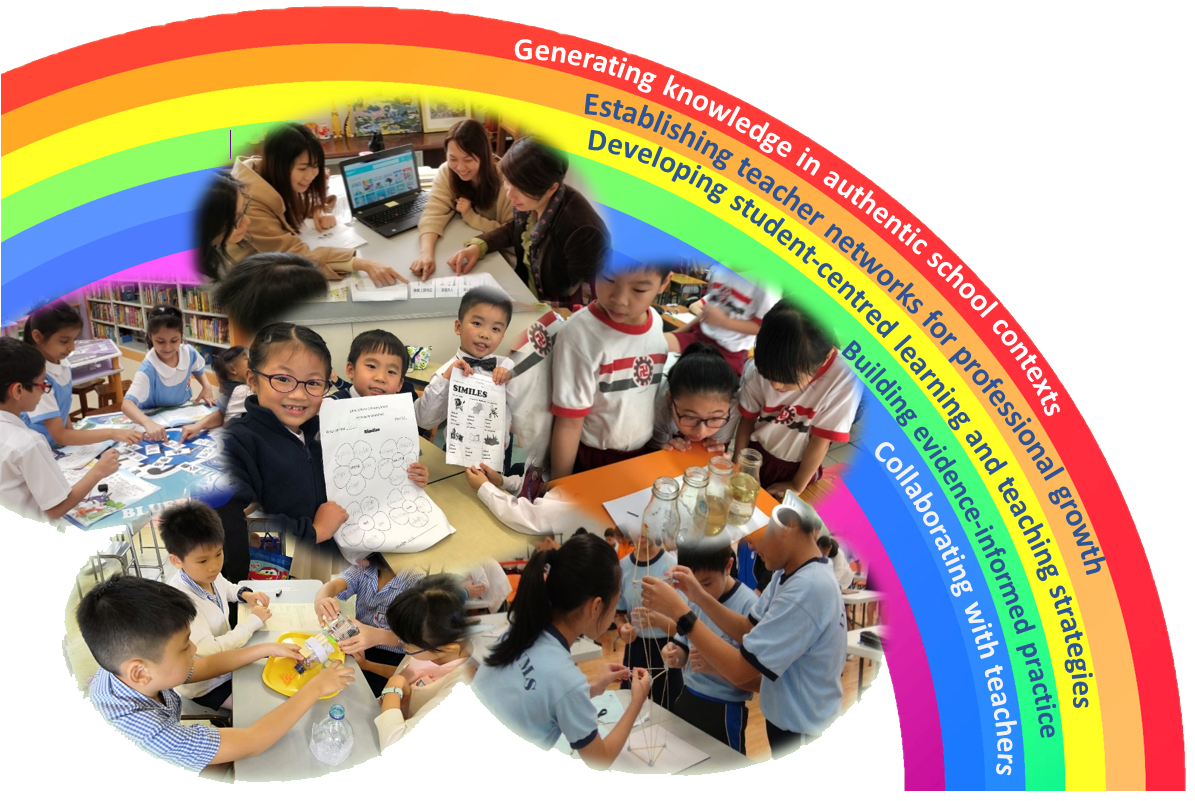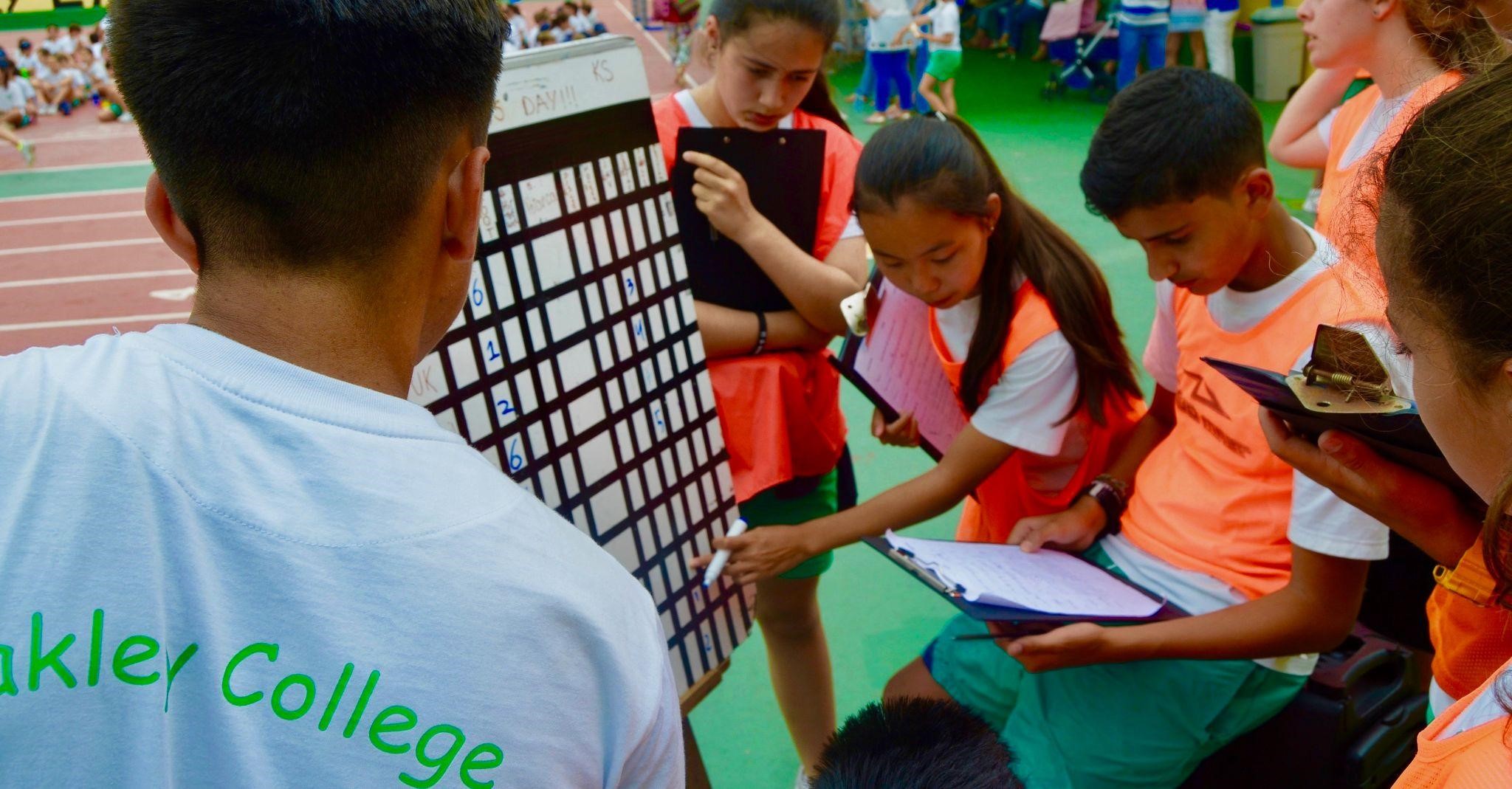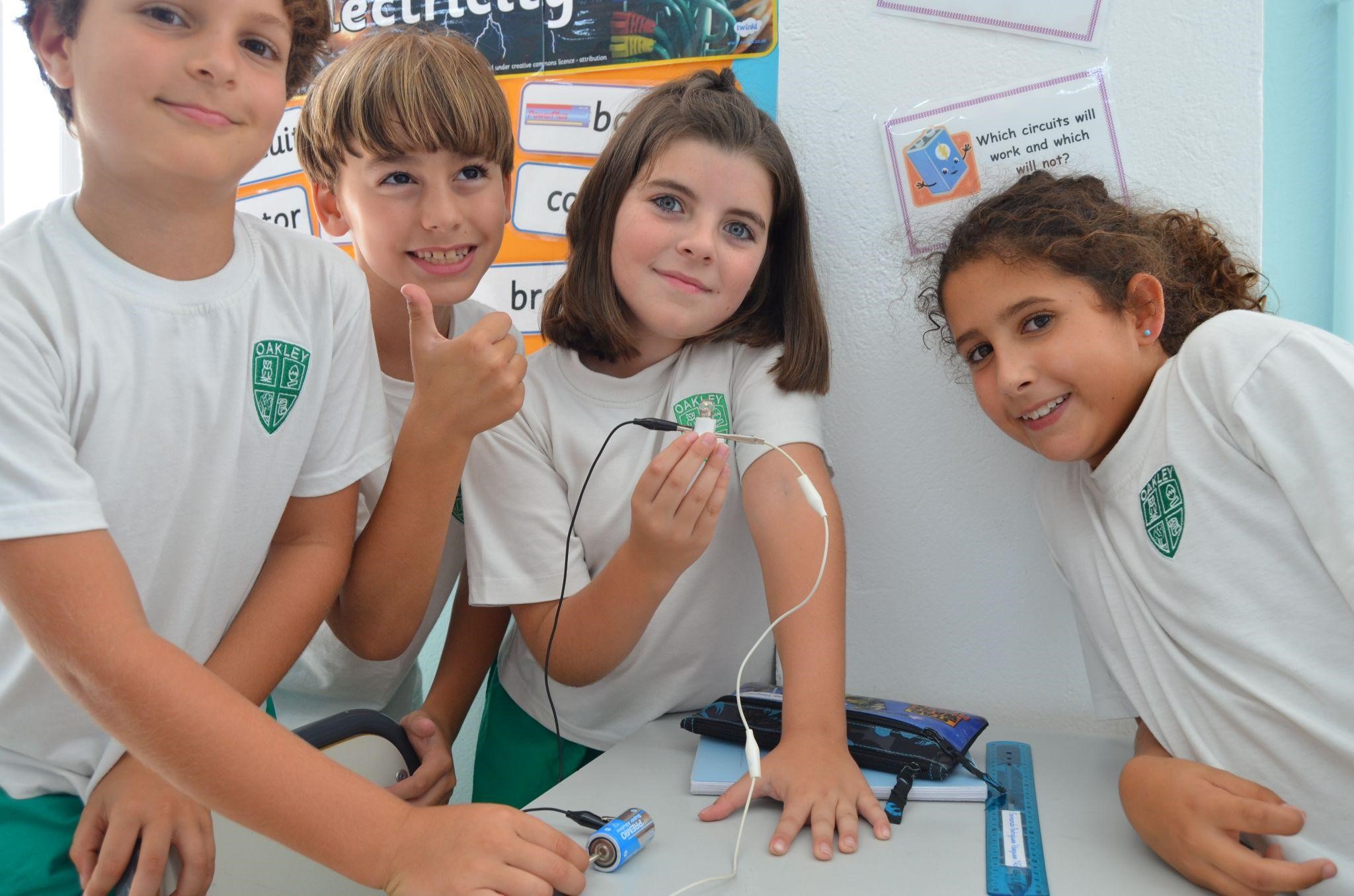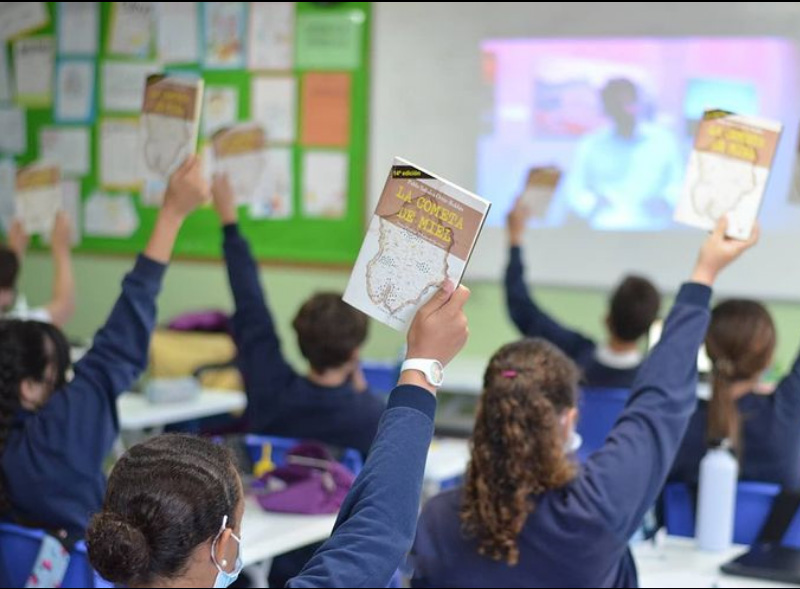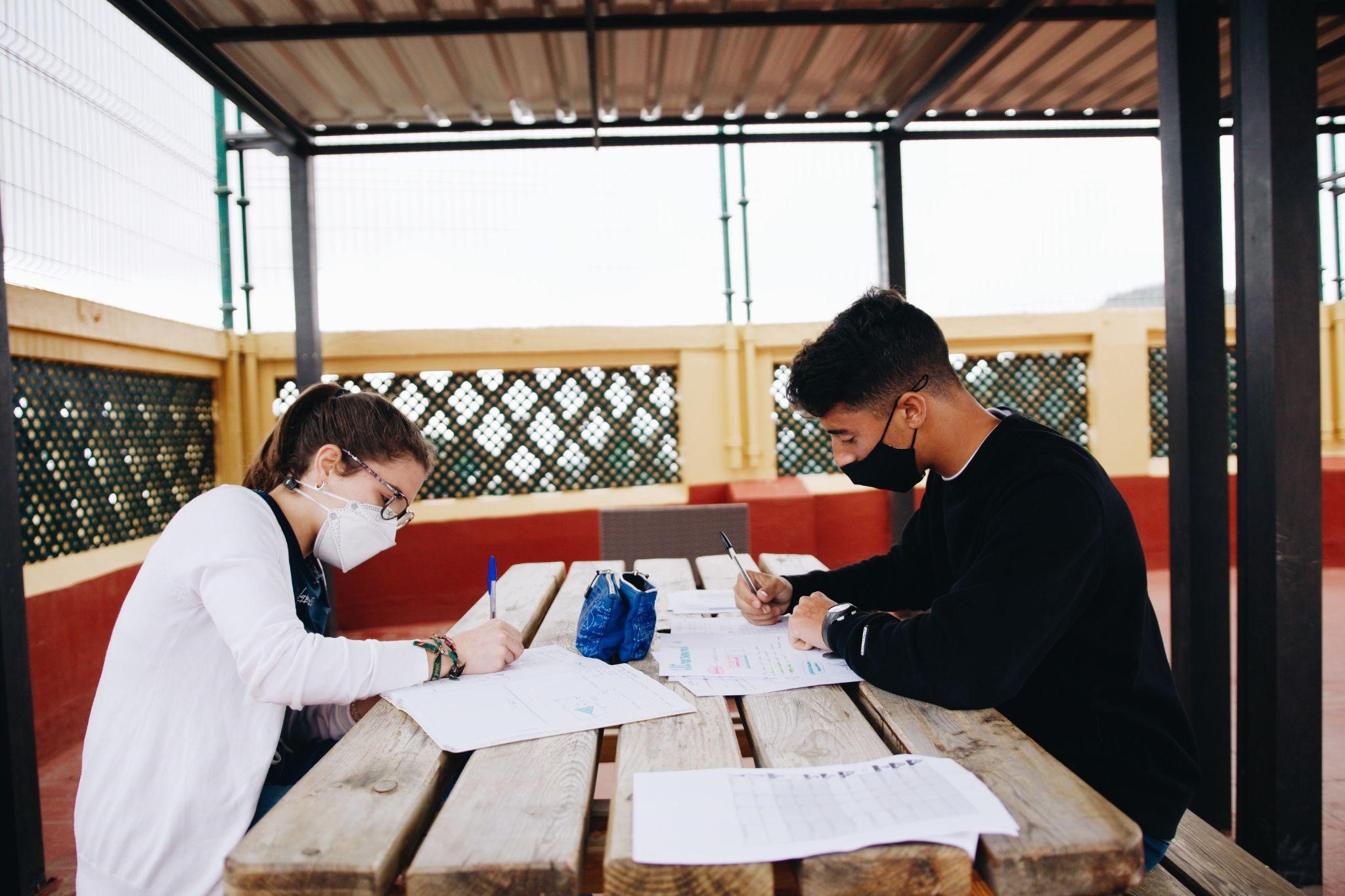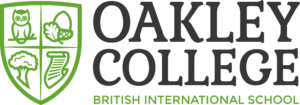Our international education project develops inquiring, knowledgeable, confident, and caring young people.
The programme empowers students to take ownership of their own learning and help them develop future-ready skills to make a difference and thrive in our ever changing world.
The curriculum is designed to develop well-rounded individuals who can respond to today’s challenges with optimism and an open mind.
International education advances learning and academic achievement; builds understanding and respect among different cultures; and enhances constructive leadership in our global community.
We provide a British international educational experience; a diverse, tri-lingual approach, with a strong underlying value system catering to the individual needs of our students as well as to the school community as a whole. Our language policy involves immersion in three languages (English, Spanish and an option of French or German) and our senior students work towards either the Spanish Bachillerato, the Internationally accepted A-Levels or a dual award of both. All our students are also entered for Cambridge English Language exams.
FCE (First Certificate in English)
CAE (Certificate in Advanced English)
CPE (Certificate of Proficiency in English)
Our aim is to encourage a passion for excellence, social commitment and critical thinking in our students, helping them to achieve both personal and academic success.
The Oakley Curriculum
Our school Curriculum provides students with an introduction to the essential knowledge they need, to be educated citizens. It is based on the British International model, with special emphasis on linguistic competence and particular attention to life skills, the arts, music and sport.
The curriculum:
- Promotes the personal, moral, cultural, mental and physical development of students
- Prepares our students for the opportunities, responsibilities and experiences of later life
- The British curriculum is taught in English by UK qualified teachers.
- The Spanish language and Social studies (geography and history of Spain) are taught in Spanish by the Spanish staff.
- To access universities in Spain and around the world, Ebau (PCE) basica and especifica subjects are taught in the 6th Form (bachillerato) along with A-Levels.
We believe in an education that goes beyond just exams. Our students are therefore challenged to develop their skills in leadership, cultural sensitivity and awareness, teamwork, communication, initiative and problem solving.
One of the strengths of Oakley College is the personal care and services provided. Each student is recognised as an individual with their own interests, needs and challenges. We have a strong relationships with the parents and a well-structured pastoral care system within our school community which helps develop our family atmosphere.
Methodology
Our methodology is called “accelerated Learning” and is focused on effective learning and teaching. We seek to identify and develop each student’s learning style in order to awaken their talents and desire to achieve.
A strong belief that students may differ in their basic academic ability, but EVERY student can be taught how to be a better learner. And so improve their motivation and performance.
Building on work on study skills and the development of intelligence at institutions such as Harvard, UCLA, and Oxford universities, Accelerated Learning identifies a number of learning techniques and strategies that had a proven effect on results.
Accelerated Learning
More has been discovered about how the human brain works in the last 25 years than in all history to date. Methods developed by Colin Rose with Accelerated Learning are based on that research.
We each have a preferred learning style — a way of learning that suits us best. If you know and use techniques that match your preferred way of learning, you learn more naturally.
Because it is more natural for you, it becomes easier. And because it is easier, it is quicker. Hence the name – Accelerated Learning.
Accelerated Learning link “More information”
Life Skills
Life Skills at Oakley College focuses on all the non-academic aspects of learning and helps students develop self-confidence and self-esteem; which is the basis of all learning.
Specifically it covers 3 areas:
- HEALTH AND WELLBEING
- RELATIONSHIPS
- LIVING IN THE WIDER WORLD
Each section in the school has a specifically tailored programme that is age appropriate and focused on the developing individual, including:
- Communication and interpersonal skills.
- Decision-making and problem-solving.
- Creative thinking and critical thinking.
- Self-awareness and empathy, which are two key parts of emotional intelligence.
- Assertiveness and self-control.
- Resilience and ability to cope with problems
Responsibility for learning
Responsibility for learning is what students do in the class and outside of school to prepare themselves for the challenges of learning. By growing in independence they learn to critically reflect on their work, and make decisions that have an impact on their learning. This in turn leads them to become successful learners.
The key elements of Responsibility for learning are:
- Problem-solving
- Independence
- Responsibility
- Resilience
- Challenge
- Resourcefulness
Student Care and Guidance support
Learning is an adventure but also a challenge! All students have their own unique way of learning and all have individual strengths. We know that all children benefit and learn from each other and an inclusive school can support children to learn to live in a diverse environment.
Some students have specific needs that must be identified, so that the student can receive specific support and develop their learning. This is done through our special needs program.
This includes identifying our children´s special needs early on and responding quickly to warning signs in the child’s development by using psycho-pedagogical testing that initiates the investigation process and offers specific educational responses to the different needs presented.
To meet the special educational needs of our children, we use a variety of strategies such as curricular adaptations, special educational interventions or the recommendation of external professionals to support the child. If a possible specific learning or developmental disability is suspected, a referral report can be made by the school to help in the process of confirming a diagnosis at an outside facility.
The British education system also offers differentiated learning in class (content tailored to different ability levels), allowing all children to be working at a more individualized and challenging pace in class.
Interventions or small support groups are also used in class and outside of class during the school day to reinforce or stimulate class content in smaller groups. This support is given in the subjects of English, Spanish and mathematics with the learning support assistants. In primary school this is done during class time and in secondary, support is given through support clubs with teachers at lunchtime.
Students with specific learning difficulties, in addition to methodological and curricular adaptations, sometimes also benefit from more individualized challenges. When this is necessary, we create an“Educational Health Care Plan” where we meet at the beginning of the school year with the parents, the child, teacher and SENCO to jointly create individual targets for the student (these targets can be academic, social, or emotional). These targets are then reviewed at the end of the year together.
In special cases, support groups are offered for social and emotional skills, and stimulation of executive functions, such as attention and organization. In secondary this is taught mainly through workshops or during tutor time. In Primary, this is taught in small groups or as individual intervention in special cases.
All our students with a recognized diagnosis of Special Educational Needs are entitled to obtain Special Accommodations for their final and official internal exams, in the form of for example additional time, text reading software, etc.
Socio-emotional or mental health difficulties of our students are also supported through specialized meetings with our families and referrals to different external therapeutic support entities, in school monitoring and support within the school.
Our experience has shown us that all students have the potential to succeed and that even those who find learning difficult have strengths on which they can build and work towards a promising future.
Values
The core values that are important to us at Oakley are:
Respect
Responsibility
Resolving problems
An education emphasising excellence develops children’s awareness and understanding of human, social, cultural, ethical and global values and how to behave as a responsible, fulfilled citizen within the community.
The inclusion of values in education is at the heart of quality teaching, effective learning and positive relationships. It is also at the core of student well-being’. Values are taught as part of the curriculum which promotes inclusion, tolerance and respect among learners. It helps to develop children’s confidence in communication. It also enhances social skills, intercultural competence, and critical and creative thinking
“Being clever is not enough in our modern times; free will and deep feeling must accompany clear thought.”
Rudolf Steiner



